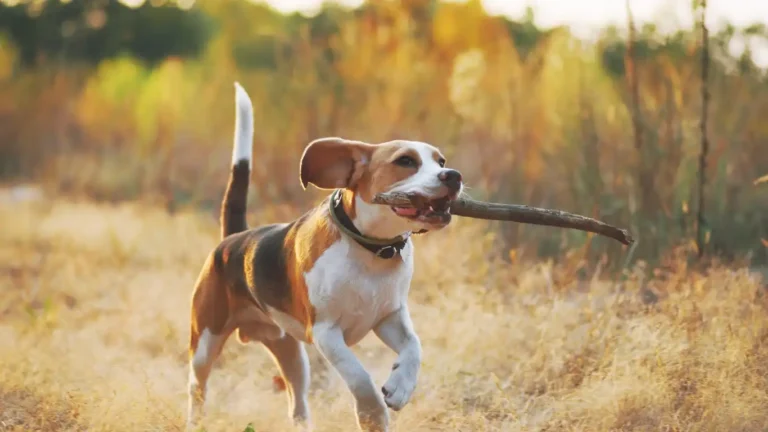Can Dogs Eat Bananas Regularly? Discover the Truth Behind This Healthy Snack
As a Pet Nutritionist with years of experience working in veterinary clinics, I often get asked, “Can dogs eat bananas regularly?” It’s one of those questions that seem simple, but there’s actually a lot to consider when it comes to feeding your dog fruits like bananas. Let me tell you, as much as we love to share our snacks with our furry companions, not all human foods are suitable for them. But bananas are an exception! They’re not only tasty but can be a healthy, occasional treat for dogs. However, before you start handing out banana slices to your pup, it’s important to understand the benefits and possible risks of feeding bananas regularly. Let’s dive into that a bit more.
Why Bananas Are Safe (and Healthy) for Dogs
Bananas are packed with essential nutrients like potassium, fiber, and vitamin C, making them a great option for dogs in moderation. As a pet care expert, I’ve seen how these nutrients can benefit your dog’s health in various ways.

Rich in Potassium
Potassium is a crucial mineral that helps maintain proper muscle function, nerve transmission, and fluid balance in your dog’s body. Bananas contain a good amount of potassium, which can help your dog’s muscles function better and may even promote healthy kidney function. In my experience, I’ve seen many pet owners who want to keep their dogs’ muscles strong, and bananas can be a useful, natural supplement to their diet.
Great Source of Fiber
Another reason why bananas are a good treat for your dog is their fiber content. Fiber is important for digestive health, and just like humans, dogs need it to help maintain a regular bowel movement. Feeding your dog a small piece of banana can give them a fiber boost and help prevent constipation. But be careful not to overdo it—too much fiber can cause stomach upset.
Can Dogs Eat Bananas Regularly? The Risks of Overfeeding
While bananas offer plenty of health benefits, it’s important to remember that like all good things, they should be given in moderation. Can dogs eat bananas regularly? Technically, yes—but not in large amounts. I often remind pet owners to keep their dog’s diet balanced and to avoid making any one food a regular part of their daily meals.

Excessive Calories Can Lead to Weight Gain
Bananas are relatively high in natural sugars, which means they can add up in terms of calorie intake. Too many calories from fruits (or any treat) can lead to weight gain. I’ve worked with many pet owners who wanted to avoid this issue by feeding their dogs only a few small banana pieces at a time. If you’re wondering whether your dog’s banana habit might be affecting their waistline, it’s always a good idea to monitor how much you’re feeding them and adjust based on their activity levels.
Choking Hazard from Banana Peels
Another thing to be cautious about is banana peels. While the fruit itself is safe for dogs, the peel can present a choking hazard or cause digestive issues if consumed in large amounts. I always advise pet owners to peel the banana before offering it to their dog. And, in my personal experience, I’ve found that dogs tend to enjoy banana slices much more than the peel anyway! Make sure you avoid offering the peel, and cut the fruit into smaller, manageable pieces to prevent any choking hazards.
How to Safely Feed Bananas to Your Dog
If you’ve decided to try feeding your dog bananas, I recommend starting with a small piece and observing how they react. Every dog is different, and some may have sensitivities to certain fruits, even if they’re generally considered safe.

Start Small and Monitor for Allergies
It’s always a good idea to introduce any new food into your dog’s diet slowly. Start with a small piece of banana, and observe how your dog reacts over the next 24-48 hours. Watch for any signs of upset stomach, like vomiting or diarrhea. In rare cases, dogs might have a sensitivity to bananas, but this is generally uncommon. When I’ve advised clients on feeding bananas to their pets, I always suggest starting small to avoid any potential issues.
Freeze Banana Slices for a Cool Treat
Frozen banana slices are a fun way to serve this treat, especially during warmer months. Dogs love the cold, and it’s a great option for a cooling snack. Just cut the banana into slices, pop them in the freezer for a few hours, and you’ve got an easy, healthy treat ready for your dog! It’s a great idea I often recommend when clients ask for dog-friendly summer snacks.
Banana and Peanut Butter Combo
For an extra special treat, try pairing a small amount of mashed banana with a dollop of peanut butter. Just be sure the peanut butter doesn’t contain xylitol (a sugar substitute that’s toxic to dogs). I’ve seen many pet owners do this for their pups, and it’s always a big hit. Just make sure to keep the portion sizes small and balanced within their daily calorie intake.
How Bananas Can Support Your Dog’s Health
In addition to being a tasty and enjoyable treat, bananas provide several health benefits for dogs. As a pet nutritionist, I’ve had the pleasure of seeing firsthand how adding fruits like bananas to a dog’s diet can be a great way to supplement their overall nutrition. Whether you’re dealing with a hyperactive puppy or an older dog needing some extra care, bananas can offer more than just a sweet snack.

Improved Digestion and Gut Health
Bananas are naturally high in dietary fiber, which plays a significant role in regulating a dog’s digestive system. Fiber helps keep things moving smoothly in their gut, and it can also help regulate stool consistency. I’ve worked with many clients who’ve noticed a positive change in their dog’s digestion after introducing small amounts of bananas into their diet. The fiber can ease constipation or diarrhea, ensuring your dog’s tummy stays happy. Of course, just as with any dietary change, it’s important to start slowly and see how your dog responds.
Boosting Energy Levels with Natural Sugars
Another reason bananas can be a great addition to your dog’s diet is their natural sugars, which provide a quick energy boost. These sugars are naturally occurring, so they’re not as harmful as processed sugars that we often find in many human foods. I always advise dog owners who have active dogs or working breeds to use banana slices as a natural energy booster before or after a workout, a play session, or a long walk. Not only does it fuel their energy levels, but it’s also a healthy alternative to more artificial energy supplements.
Can Dogs with Certain Health Conditions Eat Bananas?
As much as bananas are generally safe for dogs, they might not be suitable for every dog, especially those with specific health conditions. Let’s talk a little bit about that. It’s always best to consult your vet before introducing any new food, especially if your dog has health issues. From my experience as a pet nutritionist, I’ve had several cases where we had to adjust treats based on certain medical conditions. Bananas might be a go-to for some dogs, but others might need a bit more care when adding it to their diet.

Bananas and Dogs with Diabetes
Dogs with diabetes have to be particularly careful about their sugar intake, as their bodies struggle to process glucose properly. Because bananas are rich in natural sugars, it’s important to limit how much of them you give to diabetic dogs. While a small slice here and there might not pose a significant issue, I always recommend checking in with your vet before adding bananas or any sugary fruit to your diabetic dog’s diet. With proper monitoring and professional guidance, it’s possible to manage their sugar levels while still treating them to some banana goodness occasionally.
Weight Management in Overweight Dogs
If your dog is carrying a bit more weight than they should, you might wonder if bananas could play a role in helping them shed a few pounds. While bananas are healthier than many store-bought treats, they still contain calories and natural sugars that can contribute to weight gain if overfed. In my experience, I often suggest replacing high-calorie, fatty treats with smaller amounts of banana or other fruits as a way to provide a satisfying snack without packing on the extra pounds. However, moderation is key—small, controlled portions should be the way to go for dogs that are watching their weight.
How to Introduce Bananas to Your Dog’s Diet
If you’re considering introducing bananas into your dog’s diet, there are a few things to keep in mind. Start small, especially if your dog has never tried this fruit before. Gradually increasing the serving size while observing for any adverse reactions is the best approach. Every dog is different, and some may take to bananas quickly, while others might not be as interested at first.

Mixing Bananas with Other Dog-Friendly Ingredients
If your dog is a bit picky about their food, you might find that mixing bananas with other dog-friendly ingredients can make the snack more appealing. For example, I’ve seen great success when pet owners mix mashed bananas with a small amount of yogurt (make sure it’s unsweetened and xylitol-free). Some dogs love the creamy texture and taste, which makes it easier to incorporate this fruit into their regular treats. You can even use this combination as a healthy topping on your dog’s regular food, especially if you’re trying to sneak in some extra nutrients without them noticing!
Homemade Dog Treats with Bananas
If you’re feeling adventurous and want to get creative in the kitchen, bananas can also be incorporated into homemade dog treats. One of my favorite recipes involves mashing a banana and mixing it with oat flour and a little bit of peanut butter to form a dough. After rolling out the dough, cut it into small shapes (don’t forget to bake them at a low temperature) and voila—dog-safe banana treats! These are perfect for training, rewards, or just showing your pup some love.
Are There Any Alternatives to Bananas for Dogs?
While bananas are a great fruit to feed your dog, they’re not the only healthy option out there. As a pet nutritionist, I love helping dog owners explore a variety of tasty and nutritious treats that will give their pups a diverse diet. Just like with people, dogs benefit from variety—especially when it comes to treats. Offering a range of fruits and vegetables ensures that your dog gets different vitamins and minerals. Plus, it keeps snack time exciting!

Apples
Apples are another excellent choice for dogs, as long as you remember to remove the seeds and core. The flesh of an apple provides fiber, vitamin A, and vitamin C. Many dogs love the crisp texture of apples, and they can be a great low-calorie snack. I often recommend them to clients whose dogs are a bit overweight because apples help curb hunger without adding too many extra calories. Just make sure to cut them into bite-sized pieces to avoid any choking risks!
Carrots
If you’ve ever heard the sound of a dog happily crunching on a carrot, you know just how satisfying they can be. Carrots are a fantastic option for dogs because they’re low in calories, high in fiber, and rich in beta-carotene, which helps with vision and overall health. They’re especially great for dogs who need something to chew on to maintain healthy teeth. I’ve had many pet owners tell me their dogs love chewing on raw carrots, and they’re always thrilled to see how much their dog enjoys it!
Blueberries
Blueberries are packed with antioxidants, which are fantastic for your dog’s immune system. They’re small, easy to serve, and full of vitamin C. Just like bananas, they offer a healthy, sweet treat with plenty of benefits. Some of my clients have found that their dogs really enjoy a handful of frozen blueberries as a refreshing snack, especially during the summer months. They’re a great option if you want to mix up your dog’s fruit variety!
Sweet Potatoes
Sweet potatoes are a great source of fiber, vitamins, and minerals. Unlike bananas, sweet potatoes are a starchy vegetable, so they offer a different type of energy and nutritional value. When prepared correctly (make sure they’re cooked thoroughly), sweet potatoes can be a fantastic treat to add to your dog’s diet. I’ve seen how sweet potato chews can also be a great alternative if your dog loves to chew but needs a healthy snack option.
Can You Overdo It with Banana Treats?
One thing I can’t stress enough is moderation. Even the healthiest foods can cause issues if fed in excess, and bananas are no exception. Sure, they’re packed with vitamins and minerals, but they also contain sugar and calories that can quickly add up. It’s easy to get carried away, especially when your dog looks at you with those big, pleading eyes, but too many banana treats can lead to weight gain, upset stomach, or even more serious health problems. I always recommend that banana treats remain an occasional snack and not a daily staple.
Signs Your Dog Might Be Overindulging
If you’re feeding your dog bananas (or any treat) on a regular basis, be on the lookout for signs that they may be overindulging. I’ve worked with clients whose dogs developed stomach issues after too many snacks, so it’s important to know what to look out for. Some signs that your dog might be having too many treats include:
- Excessive gas or bloating: If you notice your dog’s stomach seems bloated or they’re passing more gas than usual, it might be a sign they’ve had too much fiber or sugar.
- Vomiting or diarrhea: Overfeeding bananas could lead to an upset stomach, especially if your dog isn’t used to fruit or a high-fiber diet.
- Weight gain: If you’ve noticed that your dog is gaining weight despite maintaining the same exercise routine, it could be from consuming too many calorie-dense treats.
If you spot any of these symptoms, it’s best to scale back on the banana treats and try to get your dog back to their normal diet. Always keep treats to no more than 10% of your dog’s daily calorie intake, which is a great guideline I share with most pet owners.
References
For more information on dog nutrition, you can explore the following trusted resources:
Disclaimer
While the information provided in this article is based on my personal experience as a Pet Nutritionist and my knowledge working in veterinary clinics, it’s always best to consult with your veterinarian before making any significant changes to your dog’s diet. Every dog is unique, and what works for one may not work for another. This article is intended for informational purposes only and should not replace professional veterinary advice.






